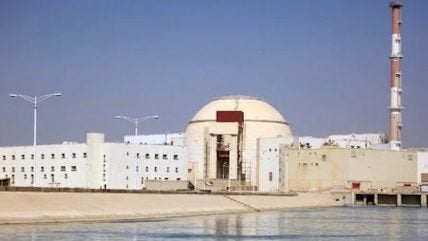
In a posting on X, International Atomic Energy Agency (IAEA) head Rafael Mariuano Grossi said “Iran’s nuclear facilities have not been impacted”, following airstrikes by Israel. “IAEA… inspectors are safe and continue their vital work. I call for prudence and restraint from actions that could jeopardise the safety & security of nuclear & other radioactive materials,” he said. There had been fears that Israel’s expected attack would target nuclear and oil facilities.
Meanwhile, Iran’s Press TV reported that many of Iran’s oil refineries today use up to 70% of sophisticated nuclear devices, “which indicates the inexorable importance of nuclear technology to petroleum-producing countries such as Iran”.
The use of nuclear knowledge in mining, oil and petrochemical industries to discover uranium mines as well as oil and gas wells through airborne geophysical surveys is one of the important scientific achievements of the nuclear industry, the report notes. “Thanks to its nuclear industry, Iran is now capable of detecting various mines and oil wells up to 15,000 metres deep with the use of airborne geophysical technology.”
The report explains that it took years before Iran succeeded in nationalising its oil industry “and even more arduous years for the country to bring up a generation of managers and specialists to extract, process and export oil”. The same applies to the nuclear industry. “Iran’s drive to develop a viable nuclear energy option faced an acerbic mix of critiquing its rationality and cost in an oil-rich country and a perceived drought of minds and talents to absorb and process such a complicated science which was deemed an exclusive specialty of the West”.
Today, the benefits of the nuclear industry are evident not least in the oil industry. “Nuclear technology, in addition to self-sufficiency in nuclear fuel, will lead to progress in other technologies and improve Iran’s position in the energy market.”
One of the most important aspects of nuclear technology in Iran is localisation of this knowledge where no power plant is run by a non-Iranian expert. “This is a big achievement, a symbol of self-confidence and a sign of the progress of the country’s educational and scientific system.”
Today, the nuclear fuel cycle from exploration, extraction and production of yellow cake to uranium processing, enrichment, production of pellets, rods and fuel complexes, to the handling of nuclear fuel in reactor and reactor waste “are all done in Iran”.






